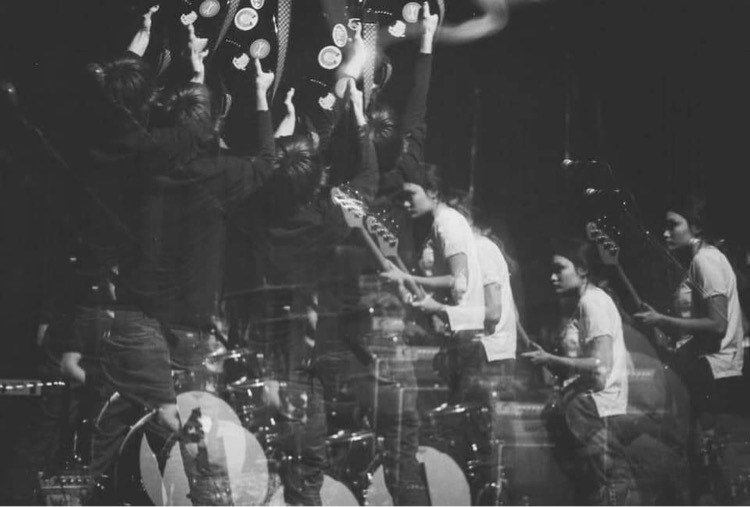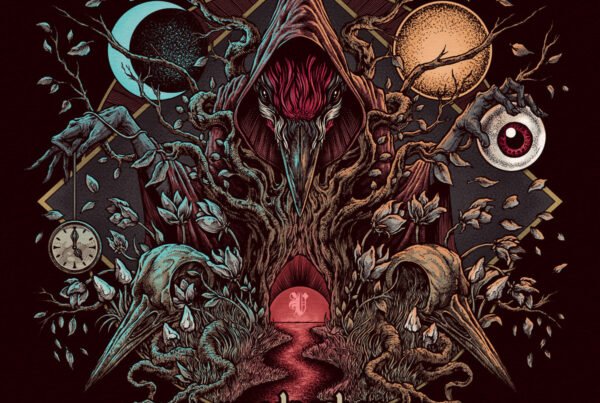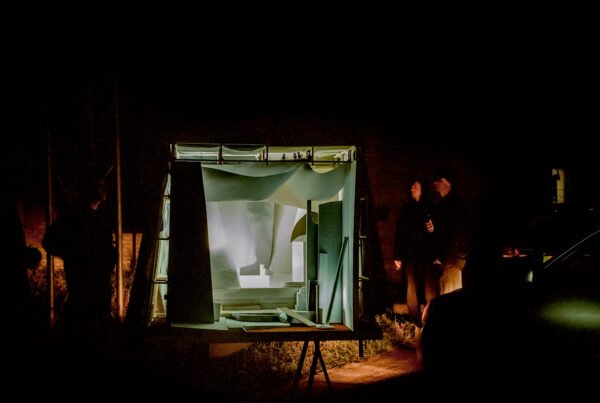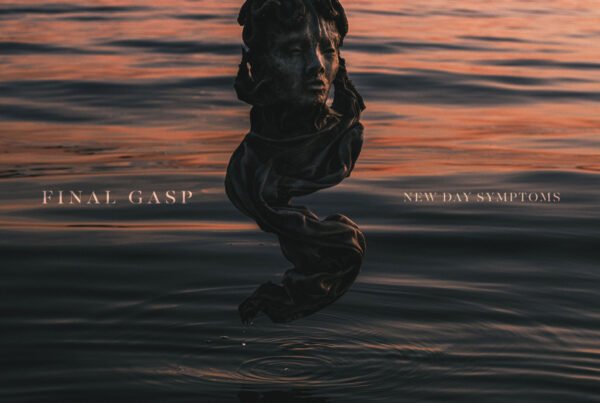A sheer release of abrasive dissonance and well calibrated angst, Sprain experiments with life’s most challenging and alluring complexities.
Release date: September 1, 2023 | The Flenser | Facebook | Bandcamp
Following a dramatic and gradual climb to recognition since their formation in 2018, LA-based outfit Sprain is the harsh and abrasive brainchild of vocalist Alex Kent and bassist April Gerloff. Along with guitarist Alex Simmons and drummer Max Pretzer, the exacerbating and impulsive drive behind much of the band’s sound can be heard in a multitude of ways, as the band initially intended on their 2018 self-titled release. Sprain employs elements of intensifying noise rock, jarring hardcore riffs, neo-classically composed slowcore, and vast moments of enhanced minimalism. Following their sophomore album As Lost Through Collision in 2020, they now look to further pursue their enraging, tempestuous form of sonic experimentation with the avant-gardist-leaning The Lamb as Effigy.
The opening couple of tracks resemble some of the record’s more direct and confrontational assets. With “Man Proposes, God Disposes”, a dissonantly imposed string ostinato acts as a prelude to a chaotic experience of jarring, noise-filled riffs and frenzied structural disorder. Similarly, “Reiterations” enters us into a cosmic void of confusion and abrasive sonic uncertainty: the vocals further spew with angst-ridden dread and apprehension that resemble a similar feat to the likes of Chat Pile. “Privilege of Being” alternatively looks to express this disillusioned state of being through jarring textures that formulate these hallucinagenically industrialised soundscapes that draw the listener in and introduces them to an ungodly amount of feedback and inharmonious chord progressions through the utility of manipulated amplifier worship and harrowing, unholy organ accompaniment.
The body of the album’s work is really where things begin to get more complexly layered and experimentation becomes a central pursuit for the artists to explore and take into their own sonic depths amongst these 20-minute-plus length pieces. The use of minimalistic tension plays a key role for much of the movements in these tracks. “Margin for Error”, for instance, emits these enormous, organ-infused textures underneath Kent’s agonising and tense vocal sermons that crescendo into a depressingly worrisome summit of disillusion and sonic hesitancy. The subsequent track, “The Commercial Nude”, employs fragments of sound pieces, such as radio broadcasts and noisy sound clippings, honouring a John Cage demonstration of tape splicing to elucidate their experimental turnings. The track further engages with some softer, yet still eminently dark timbral elements that have quite similar features to that of prime Swans material. Through the climactic shifts and timbral developments, there are moments of clarity and bleakness being entwined with each other in the aim of reaching sonic massiveness. “The Reclining Nude” and the final track “God, or Whatever You Call It” push these dynamic shifts beyond their limits in various ways: the discordant ballroom jazz piano chords, Kent’s apprehensive vocals, Pretzer’s lumbering percussive hits, and the flagrancy of the feedback-driven sound design highlight the band’s unique form of musical complexity.
Another harsh and sludgy intermission follows this densely driven post-rock concerto with “We Think So Ill of You”, that further pushes the limits of feedback and noise to their sonic extremities, inviting back this threatening and direct approach to the sound that can be felt throughout the many performative aspects of each musician in the band. Lyrically, we can also decipher this record’s nihilistic and bleakly satirical tone, through the cynically disdainful line, ‘Imagine this: I’m the guest on some obscene talk show/In a cell of moral compromise/The audience is made up of everyone that I have ever met in my entire life… The host says I now present to you an elaborate choreography of failure!/The audience erupts with seemingly coordinated jets of jargon laughter/Ha Ha Ha!/ Shame on you!’. It specifically deals with aspects of reflection and the insecure nature that we as self-aware beings can sometimes look at ourselves through a highly critical lens. The lyrically imbued sense of dread and anxiety therefore tie in closely with some of the record’s central interpretations of social negativity and sceptical disavowal, as if we are witnessing the scornful and wasteful reality of modern human existence come to fruition before our very eyes.
A true craft of horror-realist induced spectacle, The Lamb as Effigy (or Three Hundred And Fifty XOXOXOS For A Spark Union With My Darling Divine) is a piece of daring and viscous avant-garde experimentation. The varying levels of abrasion, apprehension, disorientation, dissonance, dynamism, and despair are utilised through many different facets of the band’s takes on noise, drone, hardcore, post-rock, musique concrète, and slowcore. All this is imbued in a distinctively notable fashion that, on one hand, allows Sprain to shape their sonic identity whilst giving a nod to many artists new and old that have had a clear influence on the way each of these tracks have been thoroughly curated.






